This product is not exportable outside the United States.
By adding this item to cart, you agree and acknowledge the Export Policy and confirm that you are a person in the United States with no intentions to illegally export the device.
This product is not exportable outside the United States.
By adding this item to cart, you agree and acknowledge the Export Policy and confirm that you are a person in the United States with no intentions to illegally export the device.


0

0

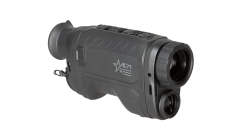
$2,195.00
Refresh rate: 50 Hz
Resolution: 384x288
FOV: 10.5° × 7.9°
$2,195.00
Refresh rate: 50 Hz
Resolution: 384x288
FOV: 10.5° × 7.9°
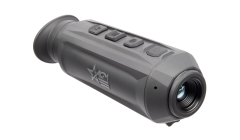
$1,095.00
Refresh rate: 50 Hz
Resolution: 384×288
FOV: 17.5° × 13.1°
$1,095.00
Refresh rate: 50 Hz
Resolution: 384×288
FOV: 17.5° × 13.1°
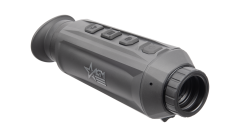
$1,395.00
Refresh rate: 50 Hz
Resolution: 384×288
FOV: 13.8° × 10.4°
$1,395.00
Refresh rate: 50 Hz
Resolution: 384×288
FOV: 13.8° × 10.4°
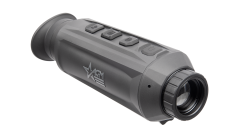
$1,659.00
Refresh rate: 50 Hz
Resolution: 384×288
FOV: 10.5° × 7.9°
$1,659.00
Refresh rate: 50 Hz
Resolution: 384×288
FOV: 10.5° × 7.9°
The AGM Global thermal monocular devices use the latest infrared imaging technology to detect even the most subtle temperature differences of natural and man-made objects, allowing you to see in near to total darkness and tough weather conditions. Our thermal monoculars also feature:
The method by which our thermal monoculars are developed is based on the principles of black body radiation, which state that any object with a temperature above absolute zero must emit infrared radiation. Thermography, or thermal photography, is possible because the amount of radiation that an object emits either increases or decreases with spikes or drops in that object’s temperature.
AGM Global Vision always strives to use the latest available thermal monocular technologies. Whereas the process of thermal imaging is converting infrared (IR) radiation (heat) into visible images that represent the spatial distribution of temperature differences in a viewed scene The main feature of all thermal imaging products is that they do not require independent sources of bright light unlike night vision technology. This allows one to see in full darkness, through smoke and low visibility, low-contrast conditions.
We offer a wide range of mission-proven, Military-grade thermal monoculars, all of which include:
All AGM Global Vision thermal monoculars are tough, impermeable, and designed to enhance comfort, ensuring that users feel both safe and in control during missions, target practice, terrain exploration, and more. Our thermal monoculars are waterproof, and all of them are constructed with durability, weather-resistance, and adaptability top of mind. AGM Global Vision customers can be confident that they’re always using tools that are high-quality, high-performance, cost-effective, and low-maintenance.
Choosing the best product to fit your needs can be daunting. This guide will help you understand and familiarize yourself with the thermal and night vision technologies so that you can find the perfect device to suit your individual requirements.
The technologies AGM Global Vision provide are the perfect solution and will definitely satisfy your needs. All you need is to choose a device that will be ideal for you and will become a reliable companion in all your travels and head-spinning adventures.
As a leading U.S. manufacturer of thermal and night vision, AGM Global Vision will be the first step on a long journey full of adventure.
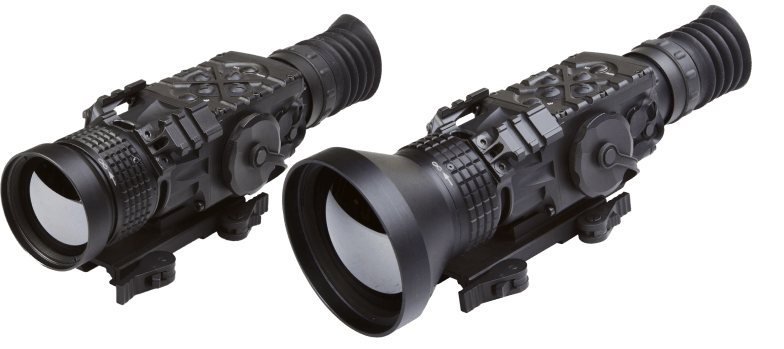
If your choice fell on thermal imaging monocular, you will receive a small, convenient device, unlike the entire night-vision line thermal imagers are capable of working without light, and even during the day. The essence of the technology lies in the registration of thermal signatures of objects. Each object has a temperature, and those objects whose temperature exceeds absolute zero are displayed by the device and provide the operator with a contrasting picture in which visualization occurs due to different shades of colors. At the same time, the quality of observation by thermal imaging devices does not depend on lighting, the time of day, the object's camouflage, or weather conditions.
In a nutshell, monocular - optical tube. Differentiates from large and serious devices, mainly only in size. Monoculars are good for their modest size while maintaining all the key advantages and capabilities of larger devices. The miniature device fits easily into a jacket pocket or a backpack. If you need to conduct surveillance in low light conditions, a thermal infrared monocular will make it comfortable and informative.
Based on a single optical tube in its design, the monocular has certain limitations. This is not a telescope that is designed for long-range observation, not binoculars, which are designed for both eyes and provide a stronger immersion in the observation area. Thermal vision goggles and thermal imaging binoculars provide the ability to provide depth to the landscape to be observed and comfort to both eyes. If you do not need to observe the same place for a long time and carefully, but you need to assess the situation, using one eye will not be a problem.
With this in mind, if you need a reliable, unpretentious, and ergonomic device, select the optimal performance for your goals, and purchase reliable equipment that will replace your eyes at night. AGM Global has something to offer for different budgets with consistent reliability. Our thermal monocular devices use the latest infrared imaging technology to detect even the most subtle temperature differences of natural and artificial objects, allowing you to see in near-total darkness and tough weather conditions.

It is worth clarifying where you can benefit from the advantages of such a pocket-sized thermal camera. The answer is straightforward, you can use them everywhere.
The technology itself is so amazing that it quickly became a demand in many industries. Today, many thermal vision manufacturers offer to sell monoculars for a wide variety of needs: from military and hunting thermal imagining systems to infrared thermal cameras for medicine and construction.
The boundaries of device usage are constantly expanding. For example, with the onset of a pandemic, when the issue of rapid monitoring of body temperature became extremely relevant, devices began to be used even more often. They help to assess the condition of heating and water supply systems during repair work. Diagnostic measures have also become more comfortable for doctors and patients, thanks to the achievements of engineers and scientists.
In the military sphere, which became the cradle of both advanced technologies: night and thermal vision, the role of devices is also huge. Soldiers must see their enemy, regardless of weather conditions and time of day, and do not forget about hunters and wildlife enthusiasts. Technology became a ticket to a new world for these people that allowed them to see much more than usual.
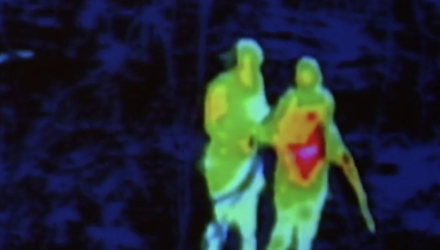
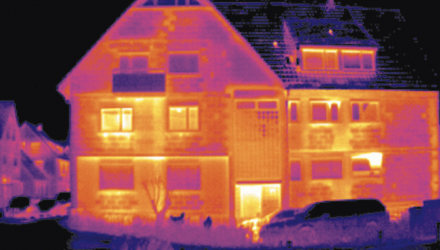
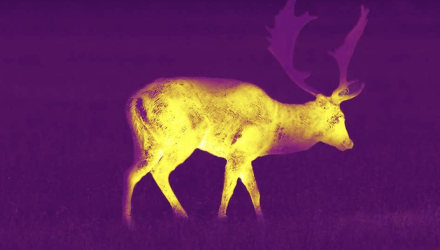
There We will focus on two main types of devices - thermal scopes and thermal monoculars. Moreover, one should not draw too explicit a line between them because they have much more in common than differences. Sights for weapons are more specific monoculars designed for aimed shooting, with special mountings and a design that allows you to withstand the recoil of the weapon. Conventionally speaking, you can use a weapon sight as an optics for observation, but this is not the most comfortable option. The design features of the scopes are not very convenient for simple observation.
Monoculars serve several purposes. They can be used in conjunction with a conventional optical sight for target identification or as a standalone observational tool. Thermal monoculars are designed to be carried in the hand, without obstruction, and do not contain a reticle for shooting. It is very convenient and practical to have a small and ergonomic device that fits in your pocket and allows you to use it, if necessary, quickly. Assess your own needs, plans, and capabilities. Find a reliable supplier and select the device that suits your needs.
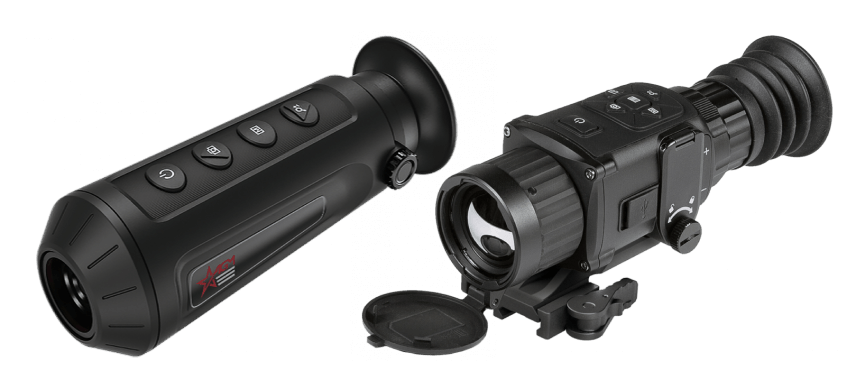
The main thing is to find a professional and quality thermal vision monocular manufacturer. It's not just a high level of service and reliability during warranty service. Any thermal vision device is complex and fragile equipment that requires very careful and professional assembly. In addition, companies like AGM Global Vision do not just assemble their own devices. Still, they are also constantly developing improvements and innovations, which, as soon as possible, are implemented into civilian models. Numerous successful contracts with the US military sector serve as the best guarantee and assessment of the quality and reliability of products.
Even if you have found a seller who meets all your requirements and requests, this is not the end. Now you have to answer the question, for what purposes you need the device. This is not the easiest question, because you need to consider many factors: from the weather in the area of use to the specific requirements for your purposes.
Specifications are also important. The price does not reflect the quality of our devices, and when you think about cheap thermal imaging monocular, it doesn't seem fantastic because you don't necessarily need an expensive device. For example, the resolution of the desired device will immediately allow you to save significantly if you do not focus on the highest indicator but analyze what quality will be acceptable for you.
We strongly advise you not to focus on infrared monocular for sale ads, which are often found on the net and the forums. For the same reasons that we indicated at the beginning of the story. The technology is extremely laborious, and devices require careful handling. When you buy a used device, you are playing a lottery game where the chances of losing are much higher than you are saving money. After all, you do not know how carefully the previous owner treated the fragile device, and you never know what defects could appear inside over the years of use.
Relatively, AGM Global Vision thermal monoculars are tough, impermeable, and designed to enhance comfort, ensuring that users feel both safe and in control during missions, target practice, terrain exploration, and more. Our thermal monoculars are waterproof, and all of them are constructed with durability, weather-resistance, and adaptability on top of mind. AGM Global Vision customers can be confident that they’re always using tools that are high-quality, high-performance, cost-effective, and low-maintenance.
From all that has been said, another conclusion follows: take care of your device. A good quality device of a reliable thermal vision device can become your reliable assistant for a long time, but only on the condition that you treat them with appropriate respect.
Any device is a work of engineering art created by true professionals in their field, and, therefore, you should not disassemble the device yourself. Leave that to the professionals and the warranty team.
Also, do not neglect the manufacturer's instructions and advice. Firstly, each model, in its own way, is unique, and if you spend a couple of extra minutes reading the operating manual, you will certainly learn a lot of new things.
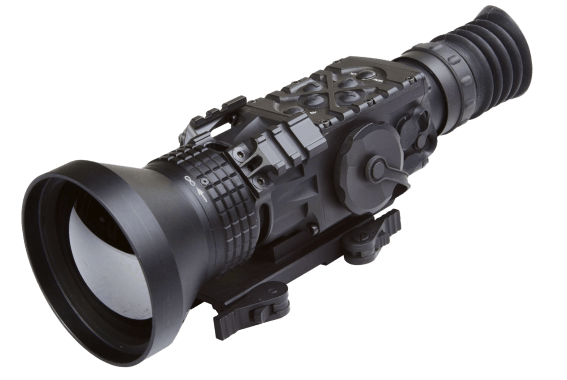
We have described thermal night vision monocular in great detail, trying to reveal the secret of this amazing technology, its capabilities, and nuances. However, this topic is so voluminous and interesting that we will need more than one or ten articles to reveal all the most interesting aspects of this technology. Therefore, let's touch on the general topics again and briefly answer the short questions that are often asked.
What else are thermal imagers used for?
Equipment for firefighters:
Who else, if not firefighters, use thermal imagers? What they use in their difficult work is not at all categorized as thermal monocular cheap. These are expensive and sensitive devices that help locate fires, identify casualties and wounded, and navigate through smoke.

Marine navigation.
If the legendary Titanic had been equipped with a modern thermal imager, they would have been able to detect the iceberg much earlier, and the tragedy would have been avoided. If the ships that came to the rescue had such technologies, then there would have been many more individuals rescued.
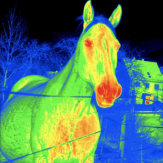
Veterinary medicine.
Animals do not know how to talk, and if they get sick, you need to use maximum opportunities to diagnose the disease. In this case, thermal imaging technology becomes almost the main diagnostic tool, both in the treatment of animals and people's treatment.
The areas of application, in fact, are limited only by imagination. Because almost all objects in our world have a temperature, and their fluctuation or mode can give a huge amount of information. It is not surprising that, among other things, the devices are used in: the fight against agricultural diseases, military defense, pest detection, and many, where else.
How accurate is the thermal image?
It must be understood that the camera cannot accurately determine the temperature of the object. Even your home thermometer will not show the perfectly accurate temperature of your body. The camera determines the indicators of the areas surrounding the subject of observation. It may differ from the actual one because it is influenced by climate, wind, and external indicators.
This can only be a problem if you need more accurate temperature readings of several nearby objects. For visualization, the accuracy of the image obtained with a thermal imager is more than sufficient.
Can thermal imaging monoculars be used during the day?
As we have already indicated, thermal imaging determines radiation. For this reason, light does not matter. It is quite logical that the thermal radiation of a person or animal will be intense both during the day and at night. Light has nothing to do with this technology, which means it does not depend on it. Unlike night vision devices, which can be damaged by strong illumination.
Is it possible to see objects behind a wall using thermal imaging technology?
Your thermal imaging monocular is a tremendous piece of equipment, but, it cannot work miracles. Your small monocular is unable to distinguish the heat signature behind the blockage.
For the same reasons, you will not identify an object behind glass or deep in water. Actually, the possibility and options of hiding from the thermal imager deserve a separate article, but hopefully we have explained the essence.
Is thermal imaging dangerous?
A ubiquitous question is usually asked by people who do not believe in our landing on the moon and suspect that aliens rule the US. Don't believe in harmful myths. Thermal imagers do not emit radiation or other harmful rays. Your thermal imaging monocular is just a high-tech sensor that detects infrared radiation and, after processing, provides you with acceptable image quality.
Is thermal vision legal?
You have the right to own such a device, but with the use of everything is not so simple. Today, in 40% of states, hunting with a thermal scope is prohibited, but, this trend is changing. More and more petitions are demanding to allow hunting and, legislators, more and more often lift the illogical prohibitions.
In the case of thermal imaging monocular, no one can forbid you to enjoy, say, the secret nightlife of animals or birds.
Let's move on to the specific requirements for your future ergonomic and powerful monocular. It should definitely be capable of recording digital video and photography, and definitively, it should be a smart device with simple integration for iOS and Android.
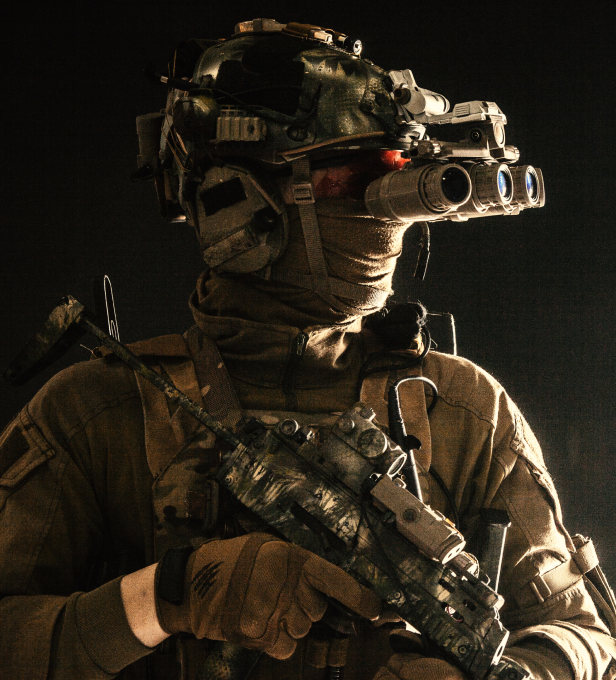
Advanced lens materials and ergonomic construction are not even discussed because without these points. It is simply impossible to imagine a high-quality and modern device.
Innovation and cutting-edge design also make the difference between a great item and a cheap replacement. For example, if, during development, the method based on the principles of black body radiation is implemented, which states that any object with a temperature above absolute zero must emit infrared radiation, then your purchase will already stand out from the competitors. Thermography, or thermal photography, is possible because the amount of radiation that an object emits increases or decreases with spikes or drops in that object's temperature. Oddly enough, we have just described the products of the leading thermal vision monocular manufacturer AGM Global Vision. AGM Global Vision always strives to use the latest available thermal monocular technologies. The process of thermal imaging is converting infrared (IR) radiation (heat) into visible images that represent the spatial distribution of temperature differences in a viewed scene. The main feature of all thermal imaging products is that they do not require independent sources of bright light, unlike night vision technology. This allows one to see in full darkness through smoke and low visibility, low-contrast conditions.
But that's not all. We offer a wide range of mission-proven, Military-grade thermal monoculars, all of which include:
Most importantly, what we offer is quality. Quality in everything, but above all in our products. If you are buying a thermal imaging monocular, we will only see you when you want to upgrade your instrument. After all, we produce high-quality and reliable things, as well as building high-quality and reliable relationships with our customers.